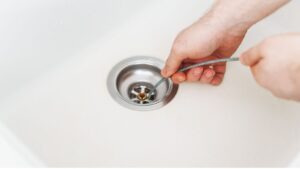No, you should not smoke after a deep cleaning. Smoking can hinder the healing process and increase the risk of infection.
After a deep cleaning, it is essential to follow the dentist’s instructions to ensure proper healing and optimal oral health. Deep cleanings remove plaque and tartar buildup from below the gum line, which can cause gum disease if left untreated.
During the healing process, it is crucial to avoid smoking, as it can cause further damage to the gums and delay the healing process. It is best to wait until your dentist gives you the go-ahead before smoking again to avoid any potential complications. Taking care of your oral health by following your dentists’ instructions will help prevent further dental problems and improve overall health.
Understanding Deep Cleaning And Its Purpose
Defining Deep Cleaning And Its Importance
Deep cleaning is a thorough cleaning process that is performed to remove stubborn dirt and debris from teeth and gums. It’s different from regular cleaning because it involves cleaning below the gum line and between teeth. The purpose of deep cleaning is to prevent and treat gum disease, which is one of the most common dental problems among adults.
Some of the key benefits of deep cleaning include:
- Improved oral hygiene: Deep cleaning removes plaque and tartar buildup, making it easier for you to clean your teeth at home.
- Reduced risk of tooth loss: Deep cleaning can prevent gum disease, which is one of the most common causes of tooth loss in adults.
- Fresher breath: Deep cleaning removes the bacteria that cause bad breath.
Types Of Deep Cleaning Techniques
There are two main techniques used in deep cleaning: scaling and root planing. Scaling is the process of removing plaque and tartar buildup from below the gum line, while root planing involves smoothing out rough spots on the roots of the teeth.
Here are some important points to remember about these two techniques:
- Scaling: During scaling, a dentist or hygienist will use a special tool called a scaler to remove plaque and tartar buildup from the roots of your teeth. This process may take more than one appointment to complete.
- Root planing: Root planing involves smoothing out rough spots on the roots of the teeth. This process can reduce the risk of gum disease and make it easier to clean your teeth at home.
Deep cleaning is a critical dental procedure that can help prevent serious dental problems like gum disease. If you have any concerns about your oral health, be sure to talk to your dentist about deep cleaning options.
The Effects Of Smoking On Oral Health
Can You Smoke After A Deep Cleaning?
Deep cleaning, also known as scaling and root planing, is a non-surgical procedure that removes plaque, tartar, and bacteria from below the gum line. It is an effective treatment for gum disease, but can you smoke after a deep cleaning?
Let’s explore the effects of smoking on oral health and how it can affect the outcome of deep cleaning.
The Damaging Effects Of Smoking On Gum Tissue
Smoking is one of the most significant risk factors for gum disease. It weakens the immune system, making it harder for the body to fight off infections. Smoking also restricts blood flow, which prevents the gums from getting the necessary oxygen and nutrients.
As a result, the gums become more susceptible to damage and are slower to heal.
How Smoking Can Affect The Outcome Of Deep Cleaning
Smoking can have a significant impact on the outcome of deep cleaning. It can delay the healing process and increase the risk of infection. Smoking can also cause:
- Reduced effectiveness of scaling and root planing
- Increased bleeding and sensitivity after the procedure
- Recurrence of gum disease in the future
Therefore, it is recommended to quit smoking before and after deep cleaning to improve the chances of successful treatment.
The Benefits Of Quitting Smoking
Quitting smoking can be one of the most effective ways to prevent gum disease and improve your oral health. Here are some of the benefits of quitting smoking:
- Reduced risk of gum disease and tooth loss
- Improved taste and smell
- Reduced risk of oral cancer
- Better breath
- Healthier gums and teeth
Smoking can have damaging effects on oral health and can affect the outcome of deep cleaning. Quitting smoking is highly recommended to promote better overall health and improve the success of oral treatment procedures.
What Happens During A Deep Cleaning Procedure
The Process Of Deep Cleaning And Its Components
A deep cleaning procedure is a dental cleaning that removes bacterial buildup, plaque, tartar, and other harmful debris accumulated in the gum line and below it. Here are the components of a deep cleaning:
- Scaling: Involves removing tartar and plaque from the tooth surfaces and beneath the gum line.
- Root planing: Involves smoothing the root’s surface and removing any infected or damaged spots on the tooth root.
- Laser therapy: Used to remove harmful bacteria from the gum pockets.
- Antibiotic treatment: Antibiotics are used to remove the remaining bacteria from the gum pockets.
After-Care Procedures
After-care procedures are essential after a deep cleaning to ensure your teeth and gums remain healthy and to prevent gum disease. You should:
- Continue brushing and flossing twice a day to remove any new bacteria buildup.
- Use an antibacterial mouthwash to kill bacteria and freshen your breath.
- Avoid smoking and drinking alcohol, as these substances can damage your teeth and gums.
- Follow a balanced diet and avoid sugary or sticky foods that can cause plaque buildup.
- Schedule your next appointment with your dentist to monitor your dental health.
Can You Smoke After A Deep Cleaning?
If you have recently undergone a deep cleaning procedure, you may be wondering if it is safe to smoke afterward. A deep cleaning is a periodontal treatment that cleans the teeth and gums thoroughly, eliminating tartar and bacteria from beneath the gum line.
This type of cleaning is necessary for individuals who have gum disease or are at high risk of developing it. Smoking after a deep cleaning can delay the healing process and cause further damage to your oral health. We will discuss the immediate effects of smoking after a deep cleaning, the long-term benefits of not smoking, and tips for quitting.
Immediate Effects Of Smoking After Deep Cleaning
Smoking after a deep cleaning can have harmful effects on your oral health, including:
- Increased risk of infection: Smoking reduces blood flow to the gums, making it harder for them to heal after deep cleaning. This can increase your risk of infection.
- Delayed healing: Smoking can slow down the healing process. It takes longer for the gums to recover after scaling and root planing, and smoking hinders the process even further.
- Bad breath: Smoking can cause bad breath, which can make you feel self-conscious and uncomfortable around others.
- Disrupts natural oral flora: Smoking alters the balance of bacteria in your mouth, which can lead to more severe oral health issues over time.
Long-Term Benefits Of Not Smoking After Deep Cleaning
Quitting smoking after a deep cleaning has numerous long-term benefits, including:
- Reduced risk of gum disease: Smoking increases your risk of gum disease, and quitting smoking after a deep cleaning can help prevent further damage to your oral health.
- Fresher breath: Quitting smoking can lead to fresher breath, which can boost your confidence and make you feel more comfortable in social situations.
- Improved overall health: Quitting smoking has numerous health benefits, including reducing your risk of heart disease, cancer, and other health issues.
Tips For Quitting Smoking
Quitting smoking can be challenging, but there are several tips that may help make the process easier. These include:
- Creating a plan: Before quitting smoking, create a plan that includes setting a quit date, identifying triggers, and finding ways to cope with cravings.
- Finding support: Reach out to friends, family, or a support group to help you through the quitting process.
- Using nicotine replacement therapy: Nicotine replacement therapy, such as nicotine gums or patches, can help ease withdrawal symptoms.
- Staying active: Exercise can help reduce stress and cravings, making it easier to quit smoking.
- Practicing self-care: Engage in activities that promote relaxation and well-being, such as meditation, yoga, or massage.
Smoking after a deep cleaning can have harmful effects on your oral health. By quitting smoking, you can reduce your risk of gum disease, enjoy fresher breath, and improve your overall health. Use the tips listed above to help make the quitting process easier, and speak with your dentist or healthcare provider for additional support and resources.
Importance Of Follow-Up Visits After Deep Cleaning
Maintaining excellent oral health involves more than just scheduling a deep cleaning at your dentist. It also includes informative follow-up visits that ensure long-term success and prevention of dental problems. Here are the essential reasons why follow-up appointments are necessary for optimal oral health:
Purpose Of Follow-Up Visits
The aim of follow-up appointments is to:
- Monitor progress: Your dentist will help you track the progress of your oral hygiene routine and the success of the treatment plan.
- Early detection of dental problems: Regular check-ups help to identify potential risks before they become disastrous, such as gum disease, tooth decay, and oral cancer.
- Prevent dental issues: Your dentist will provide expert guidance on how to maintain healthy teeth and gums, thus reducing the likelihood of severe dental problems.
Why Smoking Should Be Avoided During Post-Deep Cleaning Care
Smoking after a deep cleaning can significantly compromise the success of the treatment. Smoking cigarettes will:
- Delay the healing process: Smoking slows down the recovery of soft tissues in the mouth. Nicotine causes the blood vessels to constrict, leading to an inadequate supply of nutrients and oxygen to the gums. This reduces the healing rate, causing periodontal disease to progress.
- Increases infection risks: Smoking weakens the immune system making the patient more susceptible to infections. The toxins in cigarettes interfere with the body’s healing process, leading to other oral health complications.
- Worsen bad breath: Smoking causes bad breath that can stay in the mouth for a long time, hurting your social life and self-confidence.
Caring For Your Oral Health After Every Appointment
To maintain excellent oral health, here are some tips to follow:
- Brush at least twice a day: Use a soft-bristle brush and fluoride toothpaste to brush for at least two minutes, reaching every part of your mouth, including the tongue and roof of your mouth.
- Floss regularly: Floss once every day to eliminate any food particles stuck between your teeth, reducing the risk of tooth decay and gum disease.
- Limit sugar and alcohol: Reducing sugar and alcohol consumption can prevent cavities and tooth decay.
- Follow a balanced diet: Eating the right foods such as fruits and vegetables can support healthy teeth and gums and increase the body’s capability to fight infections.
Post-treatment care is critical to your oral health’s overall success. Follow-up appointments provide valuable guidance, early detection of potential issues, and prevention of severe dental problems. Additionally, avoiding smoking tobacco is necessary to ensuring optimal healing rates and reduction of any risk of infection.
With the right tools and support, you can maintain an excellent oral health routine and achieve healthier teeth and gums for a lifetime.
Frequently Asked Questions Of Can You Smoke After A Deep Cleaning
Can I Smoke After Deep Cleaning?
It’s better to wait at least 48 hours before smoking to avoid complications in healing.
How Does Smoking Affect Deep Cleaning?
Smoking hinders the healing process and can lead to infections and complications.
Can Smoking Cause Gum Disease?
Yes, smoking decreases blood flow to the gums, which can lead to gum disease.
How Long Does It Take For Gums To Heal After Deep Cleaning?
It typically takes about 48 hours for the gums to start healing after deep cleaning.
What Are The Risks Of Smoking After Deep Cleaning?
Smoking can lead to infections, delayed healing, and complications in gum disease treatment.
Conclusion
Overall, it is important to consider the risks and health implications associated with smoking after a deep cleaning. While it may seem tempting to light up, it is important to remember that smoking can delay healing and increase the likelihood of infection and other complications.
Additionally, the chemicals in cigarettes can negatively impact the dental work done during the deep cleaning process. It is highly recommended that patients abstain from smoking for at least 24-48 hours following a deep cleaning procedure. Of course, quitting smoking altogether is the best option for long-term oral and overall health.
By working with a trusted dentist, following post-cleaning instructions, and making positive lifestyle choices, you can achieve a healthier, happier smile. Remember, your oral health is worth it!



